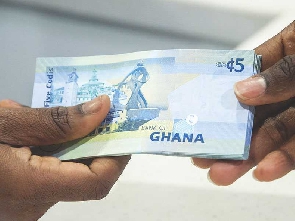 File photo of Ghana cedis notes
File photo of Ghana cedis notes
Data from the first quarter of the 2022 Annual Household Income and Expenditure Survey (AHIES) indicates that among paid workers, women were paid 34.2 percent less than men in Ghana.
The survey which was conducted by the Ghana Statistical Service said the estimated gender wage gap estimated age, approximate years of work experience, highest level of education attended, main occupation, industry, employment sector, and region of residence.
It however noted that the gender wage gap, is the lowest among paid workers with tertiary education or more where women earn 12.7 percent less than their male counterparts.
“The wage gap is highest among workers with basic education (60.1%) followed by workers with no education (54.0%). When comparing sectors of employment, the gender wage gap is highest in the private informal sector where women are paid 58.7 percent less than men,” the AHIES survey pointed out.
“This is followed by the private formal sector with a wage gap of 29.9 percent. The public sector, where women are paid 10.5 percent less than men has the lowest gender wage gap,” it added.
Meanwhile, the survey determined that among the population aged 36 to 60 years, women are paid 33.4 percent less than men representing a wage differential almost 3.0 percentage points higher than for the age group 15 to 35 years where women were paid 30.7 percent less than their male counterparts.
The 2022 Annual Household Income and Expenditure Survey was released by the GSS to mark International Equal Pay Day which is commemorated annually on September 18 to promote efforts towards the achievement of equal pay for work of equal value.
MA
Ghana’s leading digital news platform, GhanaWeb, in conjunction with the Korle-Bu Teaching Hospital, is embarking on an aggressive campaign which is geared towards ensuring that parliament passes comprehensive legislation to guide organ harvesting, organ donation, and organ transplantation in the country.
Watch the latest edition of BizTech and BizHeadlines below:
Click here to start the nomination process for the 2023 GhanaWeb Excellence Awards